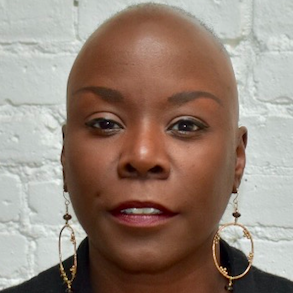Here is this week’s news of grants or gifts to historically Black colleges and universities or for programs of particular interest to African Americans in higher education.
 Baruch College of the City University of New York received a $150,000 grant from the Andrew W. Mellon Foundation to support the college’s Black and Latino studies department under the leadership of Shelly Eversley, a professor of English. The money will be used to train staff in ways to encourage students to create projects that will explicitly connect classrooms and the communities they serve. It will also work to support faculty whose scholarly work speaks directly to racial and social justice issues. Dr. Eversely is the author of The “Real” Negro: The Question of Authenticity in Twentieth Century African American Literature (Routledge, 2004). She is a graduate of Columbia University and earned a doctorate at Johns Hopkins University
Baruch College of the City University of New York received a $150,000 grant from the Andrew W. Mellon Foundation to support the college’s Black and Latino studies department under the leadership of Shelly Eversley, a professor of English. The money will be used to train staff in ways to encourage students to create projects that will explicitly connect classrooms and the communities they serve. It will also work to support faculty whose scholarly work speaks directly to racial and social justice issues. Dr. Eversely is the author of The “Real” Negro: The Question of Authenticity in Twentieth Century African American Literature (Routledge, 2004). She is a graduate of Columbia University and earned a doctorate at Johns Hopkins University
Historically Black Clark Atlanta University has received a $100,000 grant from Macy’s Future of Style Fund. The initiative aims to provide students in the university’s art and fashion department with scholarships and programming support. In addition to scholarships, the art and fashion department will use this funding to produce the department’s annual Fashion Week event, purchase new technology and equipment, and provide students with a Trends and Tours Field Emergence trip to New York City, where they will attend an all-day development workshop with Macy’s executives, visit design houses, and more.
Langston University, the historically Black educational institution in Oklahoma, received a $500,000 grant from Denver-based CoBank. The program will include scholarships, coaching and mentoring, an onsite immersion experience at CoBank’s Colorado headquarters, and internship opportunities for Langston University students.
Wright State University in Dayton, Ohio, has received a three-year, $743,769 grant to expand an antiracism and social justice training program in the Boonshoft School of Medicine. The program will utilize a unique form of dialogue to create an understanding between participants. It focuses on something called intergroup dialogue. In it, a small, diverse group will get together and share their perspectives about society and their places in it. The goal is to foster an understanding of different perspectives, which ultimately could reduce barriers to healthcare.
Coppin State University, Bowie State University, and Morgan State University – all historically Black universities in Maryland – each received $1 million grants from Baltimore Gas & Electric (BGE). The grants will provide $10,000 scholarships for students studying the STEM disciplines over the next four years at the three HBCUs. The funds will also provide persistence grants for students in need, as well as funding to support innovative research projects led by faculty and students.

